Innovation and Bioeconomy Center, a COP30 project, is a commitment to Belém's socio-economic development
According to Agreement 71, Itaipu Binacional is investing in structuring the Center, which will house around twenty startups from Belém. By 2030, the bioeconomy could be a key player in the worldwide economy, earning around USD 7.7 trillion.
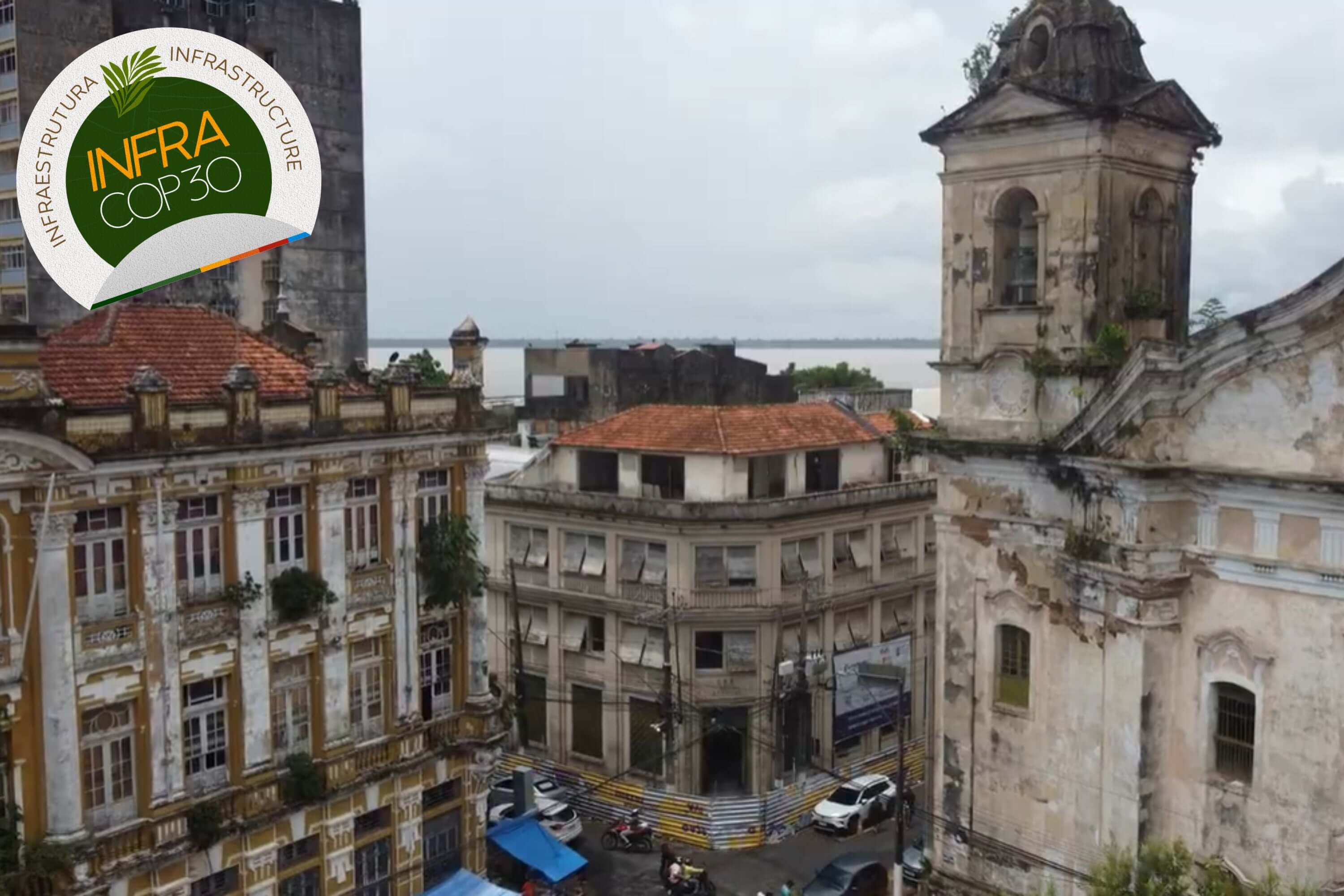
By Franciéli Barcellos de Moraes / francieli.moraes@presidencia.gov.br
Ahead of COP30 (United Nations Climate Change Conference) this November, the Brazilian federal government, through Itaipu Binacional, is investing in bioeconomy structures in Belém, the capital of Pará, to create both economic opportunities and a social commitment to more equitable and sustainable development.
“Hosting the COP in Belém is a historic responsibility for us, to shape the city into an example of how development can be guided by principles of sustainability, social justice, and innovation."
7.7 trillion USD. That is the business opportunity projected for the global bioeconomy by 2030. The report “A business opportunity contributing to a sustainable world”, published by the World Business Council for Sustainable Development (Conselho Empresarial Mundial para o Desenvolvimento Sustentável/WBCSD), highlights this potential profit for bio-based products that complement — or even replace — conventional ones, with an emphasis on the use of biomaterials in different product industries, such as pharmaceuticals, textiles, construction materials and packaging.
Via Agreement 71, the purchase of a hydrogen-powered boat, environmental education actions, and the renovation of Recyclables Recovery Units (Reforma de Unidades de Valorização de Recicláveis/UVRs) are also covered, and another project is underway: the Belém Innovation and Bioeconomy Center (Centro de Inovação e Bioeconomia de Belém/CIBB), designed to house around twenty startups. The project is part of the scope of the Brazilian federal government's commitments to structure the capital of Pará for the UN event. It also aims to leave the city with a legacy that is consistent with actions to tackle climate change.
“Hosting the COP in Belém is a historic responsibility for us, to shape the city into an example of how development can be guided by principles of sustainability, social justice, and innovation. Thus, works like this, especially within the scope of the COP Center, represent more than just investments in infrastructure. They materialize a legacy articulated with environmental education, solid waste management, and innovation in the bioeconomy," says Olmo Xavier, Infrastructure Director of the Special Secretariat for COP30 (Secretaria Extraordinária para a COP30/SECOP) of the Office of the Chief of Staff (Casa Civil) of Brasil's Presidency.
The Center will be housed in Casarão Higson, in the historical center of the city, overlooking the Rio Guamá, in front of the Ver-o-Peso Market, regarded widely as one of the largest open-air markets in Latin America. The building, well-known for having housed a company of the same name for over fifty years, is listed as a historical heritage site on the city, state, and federal levels and has now been restored to promote traditional knowledge and offer opportunities to the local community.
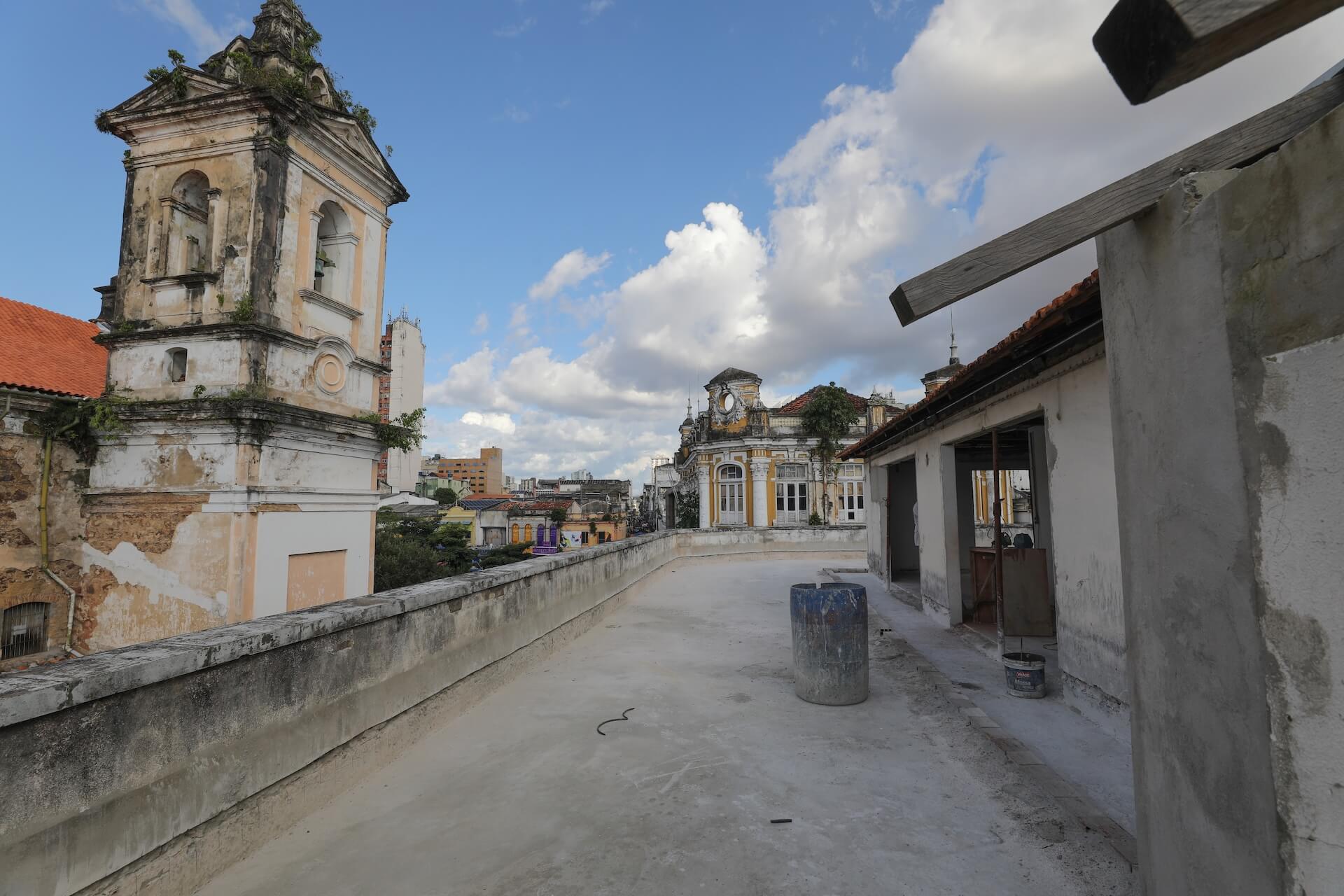
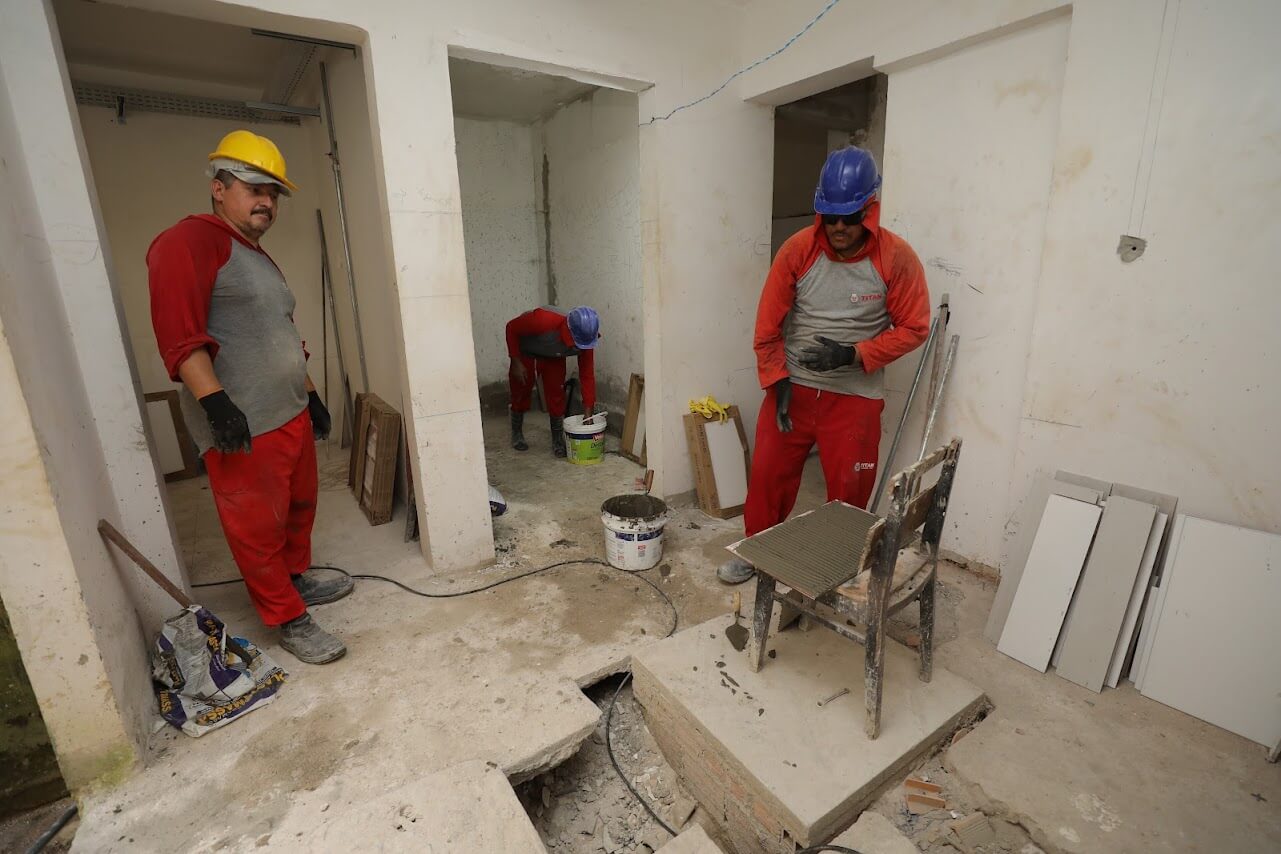
According to Euler Sizo, Belém's Secretary for Works and Infrastructure (Secretaria Municipal de Obras e Infraestrutura/SEINFRA), the building was chosen as the CIBB's headquarters for several reasons, including its geographical centrality in the city, which makes it easy for people to reach the place; the historical value of the area; and the integration of the Ver-o-Peso, where most of the sales of Amazônia's biodiverse products already take place. "It was also important to make the whole process more professional, allowing people to earn more income — and be more productive. This will be a legacy for Belém, for generations to come," said the secretary, explaining the project's relevance to the population. SEINFRA is responsible for implementing the project.
Carina Pimenta, National Secretary for the Bioeconomy at Brasil's Ministry of the Environment and Climate Change (Ministério do Meio Ambiente e Mudança do Clima/MMA), says that venues such as these, where it is possible to handle, experiment with - and understand - the products of the bioeconomy, are important for two reasons: creating an ecosystem to support business; and also helping to promote the concept of the bioeconomy to society in general.
"At the center of the bioeconomy, and also of the creative economy, is the capacity for innovation that we see in entrepreneurship, in people's ability to create products and services that address tangible society issues. I think the major connection is, precisely, in this relationship between investment, innovation, and entrepreneurship, arising in different contexts," she said.
Besides housing startups from different areas, such as biojewelry, bioperfumery, and phytopharmaceuticals, the Center will also have a coffee shop on the first floor and a restaurant on the terrace, expanding the attractive options for locals and tourists alike.
The largest investment in Itaipu's history
Itaipu Binacional's investment in actions related to COP30 represents the largest financial contribution in the history of the public-sector company outside its geographical area. In total, the city has BRL 1.3 billion in investments from the binational company, the largest generator of clean and renewable energy worldwide, a key promoter of sustainable development, and a driver of environmental and social good practices.
"Itaipu's aim, in addition to producing cheap, quality energy, is to make a socio-environmental commitment. And there is no better socio-environmental objective in the world than COP30, which is debating the global climate and, above all, drawing the worldwide attention to Brasil and its energy transition policies," said Enio Verri, the company's Brazilian director-general, on a visit to the construction site in February, with President Lula.
A leaning towards the bioeconomy
In a city located in Brasil's largest biome, the cradle of the greatest biodiversity among the world's tropical forests, the Amazônia, a place of centuries-old indigenous knowledge and innovative local techniques, the bioeconomy has been ingrained in life and business processes for much longer than the creation of an expression for this model. Thus, the Amazônia territory is essentially fruitful for new forms of business, the discovery of new inputs, and innovation in the broadest sense.
In the case of the “Filha do Combu” project, the idea of fruitful business becomes literal. For almost 20 years, Dona Nena, a riverside farmer and entrepreneur on the island, has been making organic handmade chocolates, the result of responsible management of the forest's cacao, which grows alongside other trees, such as açaí, cupuaçu, and banana. A sustainable development project on two fronts: environmental — and social, as she explains.
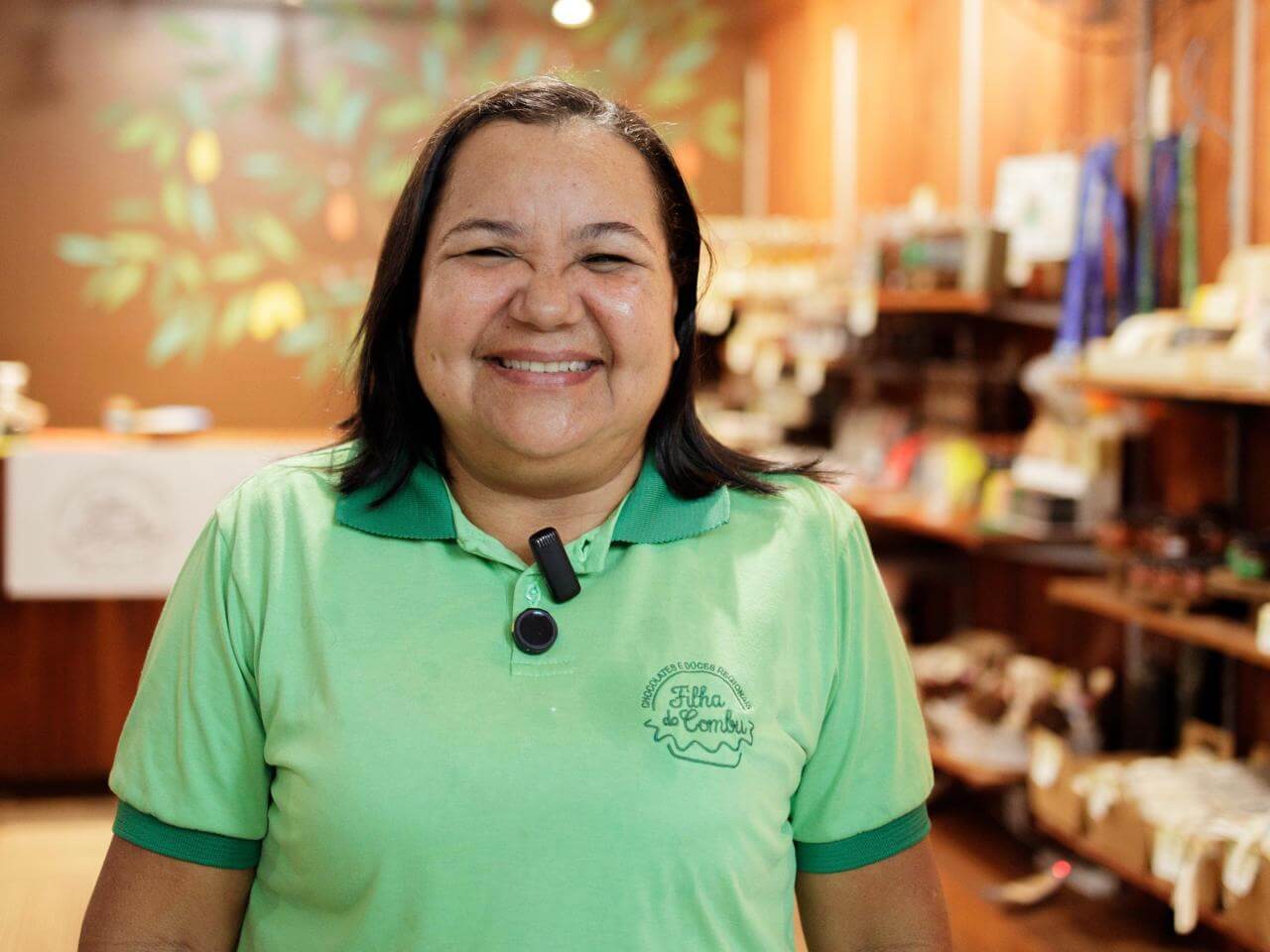
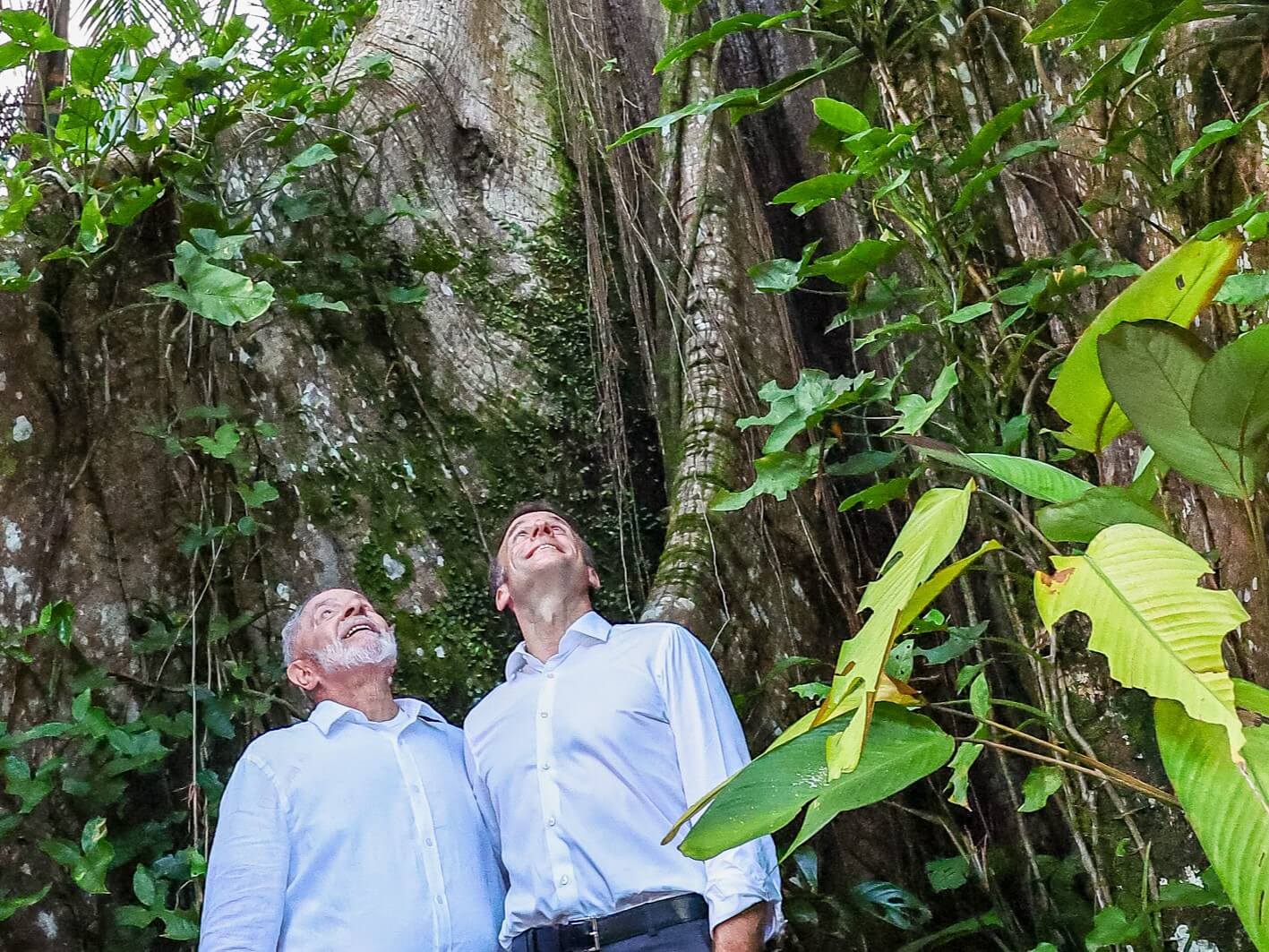
"It is also a way for us to settle in the rural areas and provide income for the community. People ask me why I don't have a store in the city, and I tell them it's because there's no job creation for the people here. The goal is to ensure that the people here don't have to leave to look for work in other areas," explains Dona Nena, hoping COP30 will be a moment to expand the forest's perspective worldwide. The company's annual turnover already exceeds BRL 1 million.
"People ask me why I don't have a store in the city, and I tell them it's because there's no job creation for the people here. The goal is to ensure that the people here don't have to leave to look for work in other areas”
To learn more about “Filha do Combu”, access exclusive audiovisual material from COP30 at this link.
To give visibility to companies like Dona Nena's, which are examples of the possibility of combining the generation of jobs and income with the maintenance of forest cover and the strengthening of the bioeconomy, in 2024, President Lula, in company of the French President Emmanuel Macron, during his first visit to Latin America, went to the "Filha do Combu", located on the fourth largest of the 39 islands that make up the insular region of Belém. At the time, both presidents launched an investment program of approximately BRL 5.4 billion in the bioeconomy of the Brazilian Amazônia and French Guiana.
The Brazilian government's work on the issue
Last year, on World Environment Day, June 5, President Lula signed a historic decree launching a National Bioeconomy Strategy (Estratégia Nacional de Bioeconomia) to coordinate and implement public policies for the development of the country's bioeconomy. The guidelines of the strategy include the promotion of regenerative agriculture, productive reforestation, recovery of native vegetation and sustainable forest management and production; respect for the rights of indigenous peoples and traditional communities to self-determination and traditional use and management of their territories; and fair and equitable sharing of the benefits arising from access to genetic heritage and related traditional knowledge.
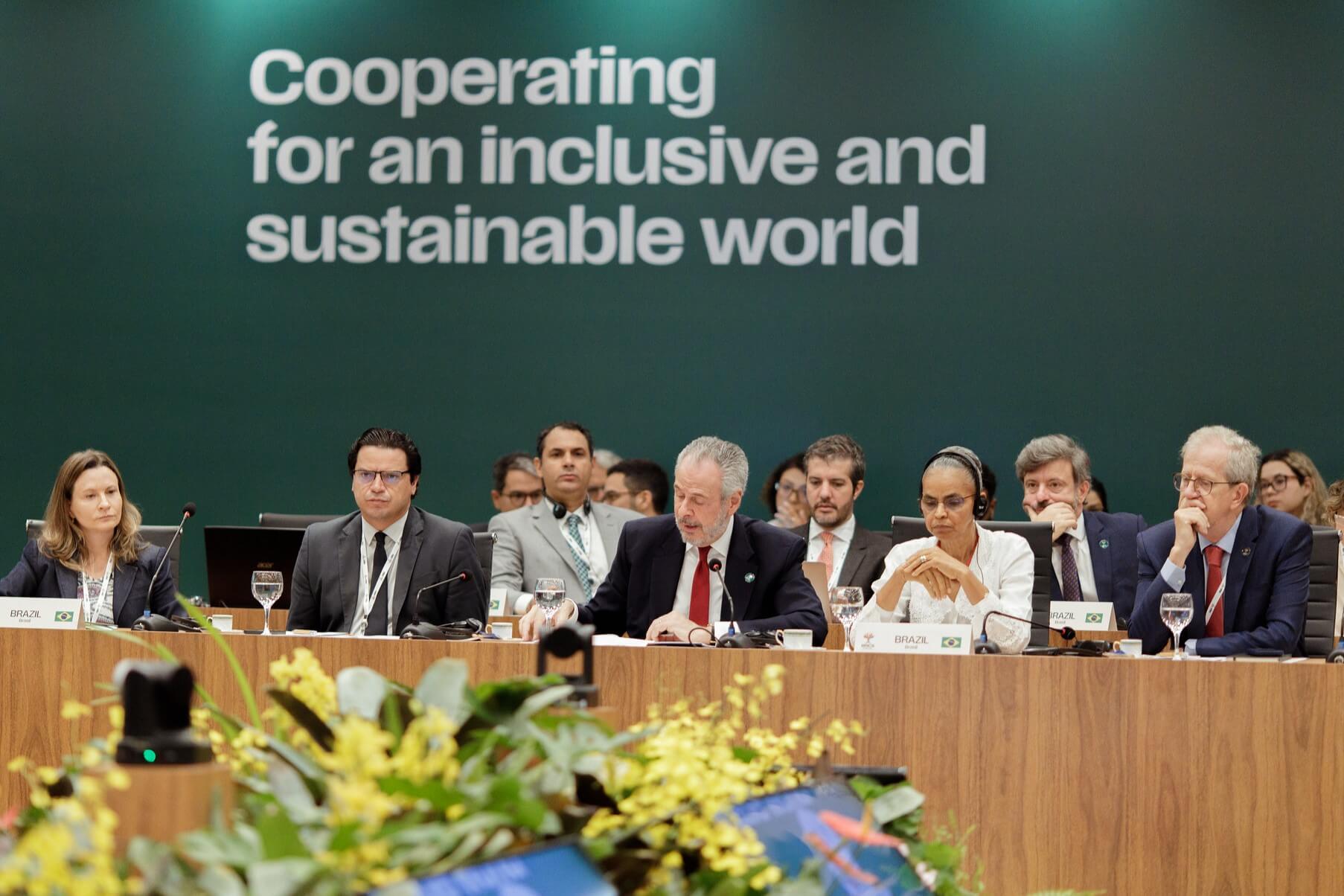
At the international arena, Brasil has also laid a foundation that strengthens the basis for work at COP30 this year. In 2024, when the country presided over the G20, a forum that brings together the world's leading economies, it launched the Bioeconomy Initiative, which circulated ten high-level principles on the topic on the topic. Coordinating the work was Ambassador André Corrêa do Lago, who is currently the COP30 president-designate.
“The bioeconomy is precisely the link between our enormous natural potential and the people who depend on this environment for their development and job creation. How do we shift to an economy in which the forest produces tangible outcomes for the society of the Amazônia, for example? This question is important because it allows us to improve the concepts and to include the issue in the international debate in a more consistent and agreed manner among countries," the ambassador stressed at the time.
According to Carina Pimenta, MMA’s secretary, the principles endorsed are directly related to the conference’s themes, especially those related to mitigation and decarbonization actions in economic sectors. "If we want a model that keeps the forest standing, reduces deforestation, and proves that it is possible to promote sustainable development in the Amazônia, the bioeconomy is undoubtedly the main path — the country's main strategy for this region. And this is what Brasil will present at the COP, through concrete actions," she concluded.
In its presidency of BRICS this year, Brasil has also built consensus on the agenda among countries in the Global South. Last month, the group's environment ministers adopted a joint declaration reaffirming the importance of "environmental multilateralism" and emphasizing the potential of the bioeconomy to build a sustainable future and promote economic growth for all.
English Version: Trad. Bárbara Menezes
Proofreading by Enrique Villamil

